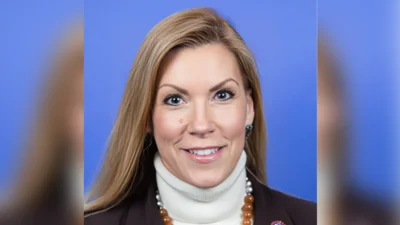Changes in weather that accompany the return to school each fall can create a challenging environment for children who suffer from asthma, the most common pediatric chronic illness.
Tanya Martinez-Fernandez, M.D., Associate Professor of Pediatrics at UT Southwestern who specializes in pulmonology and sleep medicine, recommends a number of steps parents can take to reduce the risk of their kids having serious asthma attacks.
Asthma causes inflammation in the lungs, coughing, chest tightness, difficulty breathing, and wheezing, and can be life-threatening if not effectively managed. Nearly 7% of Texas children and more than 6 million kids in the U.S. have asthma.
Dr. Martinez-Fernandez said asthma attacks and ER visits typically increase in September, when viral illnesses, allergies, and environmental factors put youngsters at elevated risk. She offered the following tips for parents:
- Keep children away from common triggers including animal dander, mold, and strong smells.
- Secondhand smoke and vape chemicals are the most common irritants that can cause youths’ asthma to flare up.
- Control dust and mold at home, use special covers on kids’ mattresses and pillows to protect against dust mites, wash bedding in hot water at least once a week, and vacuum frequently.
- Discuss allergy treatments with your pediatrician since allergies are common among children with asthma and can bring on attacks.
- Make sure children regularly take controller medications such as inhaled corticosteroids to prevent attacks – even if they’re not having problems. Have an action plan ready to deal with attacks and other asthma-related situations.
“Our Pediatric Pulmonology and Allergy physicians, as well as our advanced practice providers, have in-depth knowledge of evaluating and treating children with asthma and allergies,” Dr. Martinez-Fernandez said. “Working with parents, we help kids avoid triggers, maintain a healthy body weight, stay active, and manage their asthma throughout their childhood.”
To talk with a specialist about your child’s asthma, call 469-497-2500 or request an appointment online.
Original source can be found here.





 Alerts Sign-up
Alerts Sign-up